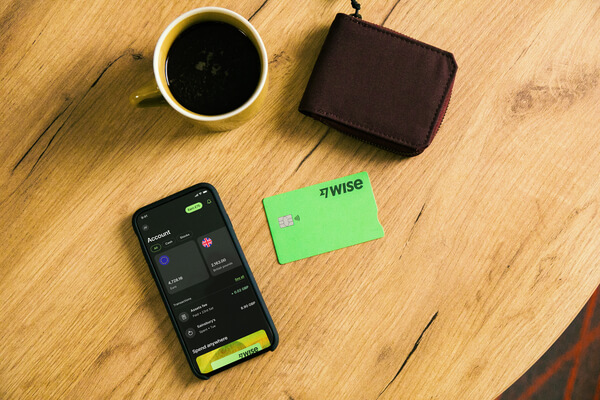How to open a Virgin Money Australia account. The steps, fees and requirements.
Looking for how to open a bank account with Virgin Money in Australia? We’ve got you covered. Here’s the process, fees and what you need to know.

If you’re looking to experience Chinese culture, but aren’t ready to leave the West completely just yet, Hong Kong is the place to be.
Hong Kong is one of the most vibrant and dynamic cities in the world, and a place where the East meets the West. There’s also a friendly expat community, making socializing an easy and pleasant experience.
Of course, if you’re planning to stay in Hong Kong for a while, you’re going to need a bank account.
Here’s how to go about opening one.
Hong Kong is a transient city, and most of its residents are temporary. Because of this, opening a basic current account is as easy as it gets, even if you’re a tourist.
The process is especially simple for EU, American and Australian passport holders; who can open an account almost immediately. For other nationalities, the process can take up to 2 weeks to complete.
Because of Hong Kong’s stringent anti-money laundering rules, you cannot open a bank account online if it’s your first account. However, once you have internet banking up and running, you can open as many accounts as you like using the online system.
Be aware though, even if you have a personal bank account, you won’t be able to open a business account online. Rules for business bank accounts are much stricter, and you’ll always need to apply in person.
That said, you can open a bank account remotely, before you arrive, if your home bank has a presence in Hong Kong.
In fact, it’s advisable to do so, as the process is much simpler. Your local branch in your home country will help you complete the necessary paperwork and send everything to the Hong Kong branch. You’ll need to do this at least 30 days before your departure.
Once you arrive in Hong Kong, just visit your new branch to confirm your identity and your account should be up and running within 15 to 20 days.
Central Hong Kong, Mid-Levels and Discovery Bay are all popular areas with expats, so it’s a good idea to choose a branch around there. Staff are accustomed to dealing with international customers, will be more proficient in English and have a better understanding of your needs.
Broadly speaking, you’ll need the following documents in order to open an account:
If you’re an employee, you’ll also need to show your contract or a letter confirming your employment.
If you’re a student, you’ll need an official letter from your university or education facility in Hong Kong confirming your registration as a full-time student.
You’ll need an HK ID card if you’re over 11 years old and plan on staying in Hong Kong for more than 180 days.
The card makes it easier to use public services, get immigration clearance and even apply for a library card. It’s more secure than a passport and has a range of ingrained data to protect you from identity fraud. It’s also necessary if you want to open a business bank account.
Getting one is free and the process is very straightforward. You’ll need to book an appointment with the Registration Of Persons Office and take your visa, passport, application form and 2 passport-sized photos to the appointment with you. You should receive your HK ID card in around 10 days.
While opening a basic bank account is quite straightforward, opening a business bank account requires a bit more work.
There was a time when Hong Kong was one of the easiest places in the world to open a business account, with no limits on the transfer of international funds. However, in an effort to crack down on money laundering and terrorist money movements, all major banks now have to comply with tough Know Your Customer (KYC) rules.
Non-resident businesses now have to give banks very detailed information about their proposed business and all company partners and employees, at the account opening stage. In addition, you’ll have to attend a formal interview at the bank, in person. Business partners and shareholders with more than 20% shares in the company must also attend the interview.
Don’t forget to respect Hong Kong’s stringent dress code! Casual dress is absolutely not acceptable.
You’ll need to take the following documents to your interview:
If the original documents aren’t in English, you’ll need to get a certified copy translated in English. You can get your documents translated from one of Hong Kong’s many translation services.

Old-world bank accounts only work properly in one country. They hold money only in one currency. And it gets expensive when you try to use them across borders. Wise's new Borderless accounts solve all of this.
Now you can send, receive and organise your money internationally, without crazy fees or even-crazier exchange rates – just a small, fair charge when your money moves between currencies. Although the Borderless account is available in most countries in the world, unfortunately it's not available (yet) if you have a personal or business address in Hong Kong.
With over 250 licensed banks, choosing the right bank can be pretty overwhelming.
If you already bank with a large international bank such as HSBC, Standard Chartered Bank or Citibank in your home country, the simplest solution is to stick with who you know and open a local account with them in Hong Kong.
Most banks offer the same type of services such as current, savings, time deposit and payroll accounts. Many also offer attractive incentives and rewards for new customers.
Here’s a brief look at the 5 biggest banks in Hong Kong to help you choose the right one for you.
HSBC is the largest international banking group in Hong Kong. Their instant access saving account gives you the convenience of a current account with added interest and choice of currency.
If you want to save money and don’t need instant access, their time deposit account has a higher interest rate than a normal savings account.
In addition, their Personal Instalment Loan has a monthly flat rate of just 0.13%. Approval is instant and you can borrow up to 12 times your monthly salary.
Standard Chartered offers air miles and cash rewards for new customers. Their Integrated Deposits account allows you to manage all your accounts from one place and also has a dual currency ATM card.
Their Salary BonusPack is currently offering a high interest rate for the first 12 months: 1% a year compared to 0.01% for a basic savings account; and your salary is credited on the same day.
Citibank is one of the easiest accounts to open from overseas.
If you’re an existing Citigold customer, you’ll automatically gain Citigold status with your Hong Kong branch; and the account will be free of charge. Citibank’s website and online banking services are also the most straightforward and easiest to understand.
The Payroll account offers a flat rate of 0.08% and free withdrawals from Citibank ATMs worldwide. International transfers between your home and Hong Kong Citibank accounts are also free.
Finally, the Global View of Accounts online system conveniently links all of your accounts in one place, making them easier to manage.
Hang Seng is part of the HSBC group, so it offers many of the same rates and services. They also offer a Green Banking account for full-time students.
Benefits include no monthly fee and a free credit card for up to 3 years after graduation, as well as an upgrade to Preferred Banking status once you graduate. You’ll also get bounced check protection for up to HKD3,500 and free foreign currency withdrawals up to the equivalent of US$1,000 per day.
BOC is a good choice if you have a lot of dealings with mainland China. They offer the best services if you want a renminbi (Chinese yuan) account.
The BOC card is linked to Jetco and Union Pay networks, which have a larger ATM network and low withdrawal fees for overseas transactions. It also acts as a debit card which has no handling fees when used in Hong Kong supermarkets and department stores displaying the ‘EPS’ logo.
Depending on your bank, you may be faced with a number of fees and charges. You should go through your bank’s terms and conditions, so you’ll know what fees they charge and whether you can avoid them at all.
Most banks charge a monthly fee, called a maintenance fee.
You’ll also need a minimum balance to to open your account (usually around HKD 10,000). Your balance must always remain above this minimum, as otherwise a fee will be charged on top of your monthly maintenance costs.
Checks are still widely used in Hong Kong, so it’s worth getting a check book when you open a new account.
However, these will also incur fees, including a delivery charge for new check books (which is waived if you give a Hong Kong address).
Some banks may also charge an early closure fee if you close your account before a given time period expires.
Early closure fees are normally in the region of HKD200.
Banks won’t charge you to use their own ATMs. Customers with Citibank and BOC can also use Jetco ATMs free of charge.
Using another bank’s ATM will usually cost between HKD15 and 20 per transaction.
International transfer fees vary between banks, but most will charge between HKD115 and HKD120 per transfer between different bank groups.
And while some banks, such as Citibank, do offer free international transfers if your account is with the same banking group, you’ll still need to watch out, as you might be getting an unfavourable exchange rate.
If you're concerned about cost, you might give Wise a try. Instead of one expensive international transfer that accumulates hefty fees from multiple banks, Wise does two local transfers in each of the respective countries - cutting out those extra fees. Not only that, but Wise offers the real mid-market exchange rate, helping you keep even more of your hard-earned money in your pocket.
*Please see terms of use and product availability for your region or visit Wise fees and pricing for the most up to date pricing and fee information.
This publication is provided for general information purposes and does not constitute legal, tax or other professional advice from Wise Payments Limited or its subsidiaries and its affiliates, and it is not intended as a substitute for obtaining advice from a financial advisor or any other professional.
We make no representations, warranties or guarantees, whether expressed or implied, that the content in the publication is accurate, complete or up to date.

Looking for how to open a bank account with Virgin Money in Australia? We’ve got you covered. Here’s the process, fees and what you need to know.

Learn how to close your Revolut Australia account. The steps, options and important need-to-knows before your begin.

If you’re a student juggling study alongside work and social commitments, ensuring you have reliable and easy access to your money is essential. Choosing a...

Coming into student life something you might not think to address straight away is your banking. Many Australian banks offer accounts designed for students,...

Depending on the bank, student bank accounts might have extra features or slightly better conditions for those studying, when compared to a standard account....

Here’s how to close your ME Bank account and options to move your money out correctly